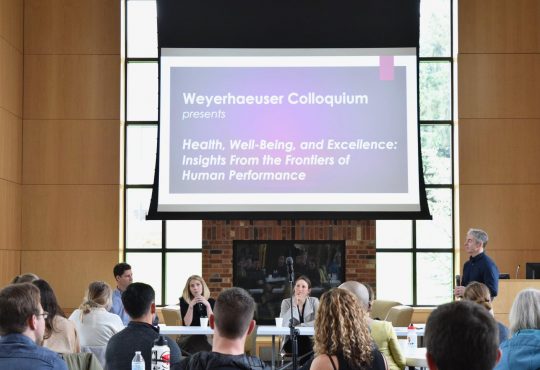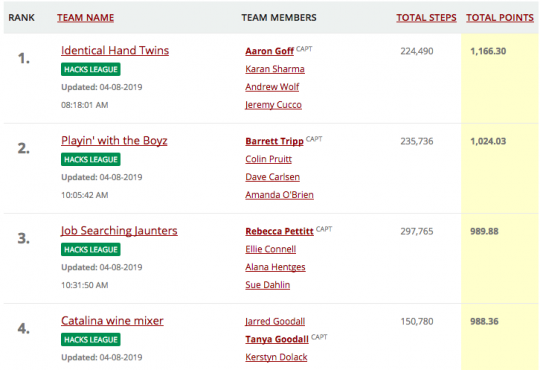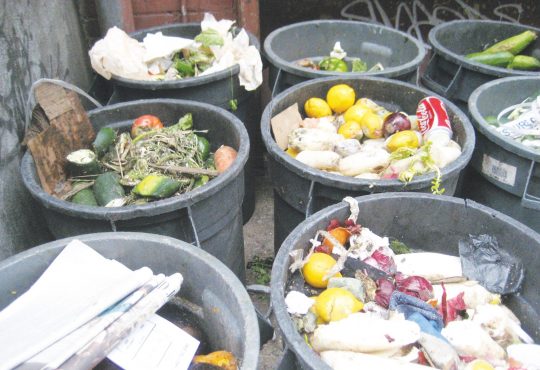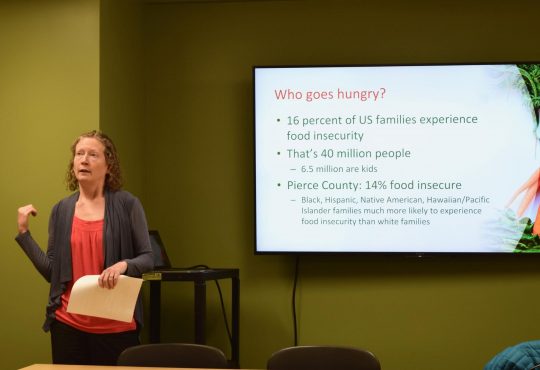Reading period is quickly approaching and stress levels are up the wazoo. How do I know this? Within 48 hours of arriving back on campus, three of my perfectly healthy housemates were stricken with various colds and general sickness.
We spent Thanksgiving break eating loads of great food and enjoying time with family and friends, but now it’s back to our routines and countless hours studying in the library, meaning finals are upon us.
In these next few weeks, think about including the foods this article mentions in your daily diet while stress levels are high. Studies have shown that food and stress can be related. Certain foods can increase stress level while others may stabilize or even lower your level of stress.
Include slow digesting carbs: whole grain bagels or oatmeal are great options. The carbohydrates provide feel-good serotonin from the brain and stabilize blood sugar.
Pistachios (or almonds/walnuts) provide stress-busting potassium to lower the amount of cortisol in your system. Almonds provide vitamin E and a range of B vitamins that will help buff your immune system and ward off stress hormones.
The satisfying crunch from raw veggies does more than you may think. The crunch factor allows your jaw to release tension, and you can also feel good about getting in your veggie quota!
Drink some milk! Specifically drinking warm milk (perhaps a vanilla steamer from Diversions?) can remedy insomnia and make for a less restless night of sleep. Also, the calcium will help to ease anxiety.
Red bell peppers contain vitamins A and C and folate, which provide energy and repair cells damaged by stress.
All foods that are rich with B vitamins are the ultimate de-stressors. B vitamins provide a calming feeling that help to ease stress and anxiety. A few foods that fall into this category are lentils, quinoa and chickpeas.
It’s easy to add good foods to your diet, but you may also want to try to avoid certain foods until after finals. Here are a few culprits that may be wreaking havoc with your stress and anxiety levels.
Caffeine of any kind will raise your stress and hormone levels and have an overall heightening effect on your anxiety level. Food items with lots of trans fatty acids may provide an instant boost of energy, but in the end will result in a slump and deplete your immune system.
Simple carbohydrates can cause stress, and with high amounts of trans fatty acids and sodium, they may increase blood pressure levels. Breads, white pastas and sausages are few foods that should be avoided in excess.
Sugary treats are great simple fixes occasionally, but if you are constantly on a sugar rush your blood sugar is never stable. Creating stable blood sugar is a prime way to reduce anxiety. To have consistent blood sugar, avoid candies and dried fruit with added sugars and fruit juices. Substitute whole fruits instead, since the fiber from the fruits slowly releases the sugars and maintains the balance in blood sugar.
And finally, alcohol is a substance that should be avoided entirely or minimized while under high stress, particularly if you are already finding it difficult to receive adequate sleep. Alcohol impairs quality of sleep and ability to think clearly.
Also, remember to eat like a “king for breakfast, a prince for lunch, and a pauper for dinner.” You are essentially eating the most before doing the most. This ensures you have the most fuel to sustain you throughout the day and are able to focus all day.
Good luck to you all and happy noshing!





